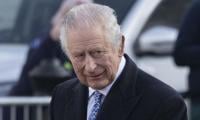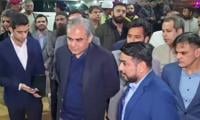ISLAMABAD: The PTI-led government on Saturday dropped another bombshell on poor Pakistanis by jacking up the petrol and diesel prices to a historic high. This comes only a day after, on Friday, the government raised electricity tariff to meet the IMF’s demand, multiplying the miseries of the fixed and low-income households.
The government raised the price of petrol by Rs10.49 per litre and that of high-speed diesel (HSD) by Rs12.44 per litre. The price of kerosene has also been increased by Rs10.95 and light diesel oil (LDO) by Rs8.84/litre. On Friday, the government increased the power tariff by Rs1.39/unit after withdrawing the Rs72 billion subsidy to resume the already stalled IMF programme. The Fund is advising Pakistan for belt-tightening to strike a balance between income-expenditure of the country.
After the increase in power and petroleum products prices, one can expect that another strong wave of high inflation is in the offing, as the international commodity prices have skyrocketed leading to increased price at home, including that of petroleum products, edible oil, and other products which we import.
The new prices of petrol effective from October 16, is Rs137.79 per litre, highspeed diesel Rs134.48/litre, kerosene Rs110.26 per litre and that of LDO is Rs108.35 per litre. In percentage terms, diesel prices increased by 10.2 percent, petrol 8.29 percent, kerosene 11 percent and LDO by 8.9 percent.
Also on Friday, the price of cooking oil and ghee surged by Rs40 per litre/kg, reaching a maximum price of Rs399 and Rs409 respectively. Contrarily, a few days ago, Prime Minister Imran Khan and his Minister for Finance Jehangir Tarin had said that the prices of edible oil and ghee will be reduced.
According to the Finance Division’s notification, oil prices [Global Benchmark Brent] in the international market had risen around $85 a barrel which was the highest since October 2018. "Importantly, entire energy chain prices have witnessed a strong surge in the past couple of months due to higher demand for energy inputs and supply bottlenecks," it further stated. The government had absorbed the pressure of increasing international rates and provided "maximum relief" to consumers by keeping the petroleum levy and sales tax to a minimum, the Finance Division said. It added, "therefore, prices worked out by Ogra (Oil & Gas Regulatory Authority) have been approved."
It is to be noted that this is the second highest raise in oil prices since June 26, 2020 when the government raised petrol prices by Rs25.58/litre, diesel Rs21.31/litre, kerosene Rs23.50/litre and LDO prices increased by Rs17.84/litre. In Pakistan, diesel and petrol consumption is the highest and the government generates most of the revenues from them. On average, the monthly consumption of diesel stands at around 0.8 million tonnes and petrol at 0.75 million tonnes, kerosene 11,000 tonnes and LDO around 2,000 tonnes.
Comparing the current prices with the prices when the PTI came into power in August 2018, Brent oil spot price in the international market was $72.5 per barrel and now it has gone up to around $85 a barrel (an increase of $12.5).
In August 2018, the local market price of diesel was Rs112.94 per litre, petrol Rs95.24 per litre, kerosene Rs83.96 and Light Diesel Oil (LDO) prices Rs75.37 per litre. Now, when the Brent price is $85/barrel, petrol price is Rs137.79/litre, diesel Rs 134.48, kerosene Rs110.26 and LDO price is Rs108.35/litre.
Although, the impact of rupee devaluation against the US dollar cannot be overruled, yet the current prices are the highest. Higher international oil prices would lead to increase in transportation charges as well as energy intensive industry products such as metal commodities. As producers pass on the increased costs to consumers, this would lead to an increase in cost of Pakistani imports, which drives up inflation.
Minister for Finance and Revenue Shaukat Fayyaz Ahmed Tarin on Saturday said the International Monetary Fund (IMF) will validate data and statistics on power gas tariffs and tax collection. He was addressing a seminar at the Embassy of Pakistan in Washington where he shared details of his meeting with the IMF director.
We are here to finalise our matters with the IMF, he said. We have told the IMF to validate the data we have shared with them. The minister said that Pakistan had reached an agreement with Independent Power Producers (IPPs) the details of which will be announced in a couple of days. Tarin said the government had achieved its growth targets in various sectors and added that it had provided relevant details to the IMF. Tarin said his meeting with IMF Director Kristalina Georgieva was a cordial and very positive one. The minister said Prime Minister Imran Khan and his government was focused on bringing about economic reforms.
Pakistan has undertaken sincere efforts to being about economic reforms, he said. The IMF director appreciated Pakistan's progress in implementing its programme .
Tarin said he held meetings with the president of the World Bank the US Pakistan Business Council. The finance minister said Pakistan will provide targeted subsidies to 40 percent of the population, adding that the government has compiled a database through which it knows the income of each household. We will provide subsidies on wheat, sugar and pulses, he said.
On the current account deficit, he said it will remain stable and will not surge like it did in the past, he said, adding that it will decrease gradually if the exchange rate is adjusted. Tarin said the government had kept a market-based exchange rate.
The Finance Minister highlighted the economic priorities of the government emphasizing that Prime Minister Imran Khan is committed to inclusive and sustainable economic growth that benefits all segments of the society especially the poor.
Meanwhile, the announcement of the unprecedented hike in fuel prices was met with a storm of political protest by entire spectrum of political parties.
PMLN President and Opposition leader in National Assembly Shahbaz Sharif demanded an immediate withdrawal of increase in prices of petroleum products.
Shahbaz Sharif termed the increase in fuel prices and the recent 14 per cent increase in the price of electricity as a continuation of the mini-budget. “The mini-budget speaks volumes about the economic failures of the current government. Imran Niazi should resign instead of taking the lives of the people by increasing inflation, as that alone would provide relief to the country and the nation,” he said.
Shahbaz said that the government was squeezing the blood of the people every day. “Despite getting concessional numbers, Imran Niazi has completely failed to serve the country and the people,” he maintained. Recalling past statements of Imran Khan in which he had linked inflation rise to a corrupt prime minister, Shehbaz said by Niazi's own recipe, now the prime minister is corrupt and such a person has no right to cling to the PM's job.
PML-N Central Vice President Maryam Nawaz Sharif harshly criticsing the government for increasing petrol prices, Maryam said the astronomical rise will impact every product making the lives of the citizen more miserable.
Chairman PPP Bilawal Bhutto Zardari also strongly condemned the unprecedented increase in petroleum products prices and said: “the PTI puppet government” has brought the tsunami of inflation within the country by surging costs of petroleum to the highest level.
“By increasing the prices of petrol by more than Rs 10/liter, the selected regime was actually charging the masses for its incompetence,” he said while rejecting the unprecedented increase in petroleum prices. Bilawal Zardari pointed out that when PPP was in power, it by no means imposed such a burden on the public even when the costs of petroleum products on the international market skyrocketed. "Solely a people-friendly government of the PPP may save the nation from the present tsunami of inflation," he maintained. He said by making petrol and diesel unbearable, Imran Khan has proved he is an enemy of the masses.
Former chairman Senate Senator and PPP leader Mian Raza Rabbani also condemned the raise in prices of petrol by Rs. 10.49 per litre and diesel by Rs. 12.44 per litre. He said in September, petrol and diesel prices were increased by Rs 9 per litre. “As a consequence the prices of essential commodities skyrocketed and now stand at an all time high,” he said. He said the government should withdraw this increase immediately because the people cannot bear this burden. “The ruling elite is forcing the common man to start committing collective suicide or revolt and create a state of anarchy,” he said.
Quoting the weekly report of the the Pakistan Bureau of Statistics, he said that prices of 22 items which include tomatoes, potatoes, ghee, mutton and LPG cylinders has gone up. “Under IMF conditionalities, the gas tariff is to be increased by 35 percent,” he said, adding that the US dollar, stands at the highest rate in Pakistan’s economic history at over Rs. 172.
In his reaction, the PMLN Punjab President Rana Sanaullah called the masses to come out on the streets against the present government. He said that it has become difficult for the people class to live. “It is high time fro the people to come out on the streets against oppression, which will continue as long as Imran Khan's government lasts.
PML-N leader Rana Sanaullah said that the tariff of electricity was increased overnight, while today the prices of petrol and diesel were increased. The government has made lives of the citizens miserable, he added. Sanaullah said that the purchasing power of the people was decreasing day by day. “Imran Khan used to say that he would not go to the IMF and would prefer to commit suicide instead,” he said and asked the people to come out and raise their voice against the incompetent government.
Defending the increase in fuel prices, Special Assistant to the Prime Minister on Political Communication Dr Shahbaz Gill said relatively less increase has been made in fuel prices in Pakistan as compared to the world.
Responding to the statement of Bilawal Zardari, he said oil production declined during corona pandemic which resulted in supply and demand issue.He said Brent crude oil prices were at 70 years high. Oil prices have gone up from $ 37 per barrel to $ 85 in the last one year, he said. Gill said crude oil prices continued to rise in the global market. Food prices were also at 10-year high, he said. He said currently the enitre world was going through a grave crisis and dubbed that the incompetent opposition is making the propaganda only for their survival, he said.
Police say that ten people were killed in Abuja and “many others” in Okija
Ministry says three drones were destroyed by air defence systems and three others by electronic warfare systems
Sanjoy Roy, 33, lone accused in case, pleads not guilty before judge in closed court in Kolkata
JUI-F chief says talks with government have been positive wherein it admitted that party’s demands were strong
Iran has poor road safety record, with 20,000 deaths reported between March 2023 and March 2024 in road accidents
"Entire nation is united to eliminate every enemy of peace," says Maryam Nawaz







